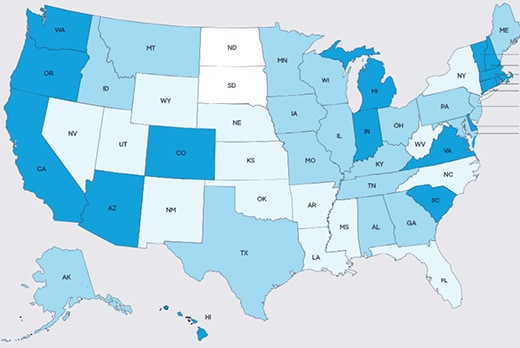Updated: Apr 13, 2022

If you're in the working world and thinking of going to graduate school for an advanced degree, one of the first things you should look into is tuition reimbursement. Tuition reimbursement is an arrangement where an employer pays all or part of an employee's cost to attend college or university classes. Many jobs have this terrific perk, but it's often overlooked. In other words, you might be able to pursue a degree and have your company pay some or all of the tab.
It doesn't hurt to investigate or ask what your company offers since it's becoming more and more common for employers to support their staff's career development. Not only is it a great perk to attract and retain top talent, but companies ultimately benefit from the increased skill sets of their workforce.
If you're ready to go back to school, here's how to find out if tuition reimbursement can work for you:
Start the Conversation With Your HR Department
If you haven't checked the company handbook lately, you might be surprised to find a formal policy in place regarding tuition benefits, especially if you're at a large corporation. Before you make any school decisions, make an appointment with your HR representative to find out if your company offers tuition reimbursement and what the parameters are, so you can see if it fits your goals.
Make Your Case
Even if there's a formal policy in place, tuition reimbursement is probably not a given. Keep in mind that you may need to talk to or convince your supervisor about the advanced degree can help further your knowledge regarding the field that you're working in. Helping them understand the benefits that it will ultimately have on the company is essential.
Put some time and effort into creating some bullet points that will outline your goals and how they align with your career trajectory. Show that you've done your homework by researching potential programs of study. And finally, be prepared to explain how you'll fit your studies into your schedule without it affecting your work day.
Understand the Fine Print
If your employer foots some or all of the tuition bill, some conditions may apply, like having to maintaining a certain GPA, majoring in a field related to your work, and/or agreeing to keep working for the company for a specified amount of time after you finish your degree. In most cases, if you don't meet the employer's stipulations, you may be responsible for paying back your employer's contributions.
Use Tuition Reimbursement In Conjunction With Other Aid
Even if your employer gives you a stipend, it may not be enough to cover all your grad school expenses. Luckily, you may still qualify for financial aid and/or apply for student loans to cover any gaps in educational costs. Remember, as you look into your schools and the costs associated with them, it's important to fill out the Federal Application for Federal Student Aid (FAFSA®).
Be Mindful During Tax Time
Don't let tuition reimbursement cause you any trouble with Uncle Sam. Depending on your situation, you may have to pay tax on any amount of employer educational assistance above the amount stipulated by the Internal Revenue Service (IRS). As such, many companies put a cap on the amount of tuition assistance they provide so as not to exceed that amount. Be sure to consult with your tax professional to see if you need to claim your tuition benefits.
If your employer is a proponent of career advancement and promoting from within, there's a chance that it also considers tuition reimbursement a good investment. By asking your company if it's willing to help finance your advanced degree, you might just get a little extra help toward reaching your goal.
FAFSA® is a registered trademark of the US Department of Education and is not affiliated with Discover® Student Loans.
We are unable to provide tax advice, so please see IRS.gov or ask a tax professional if you have questions.








